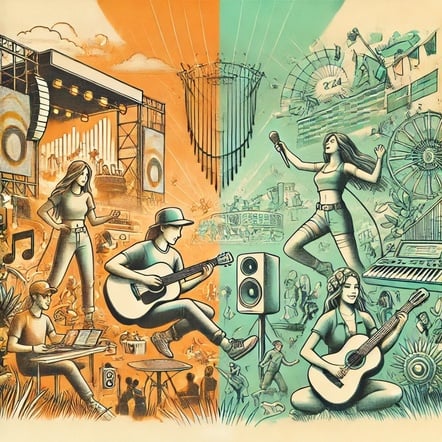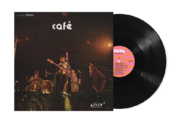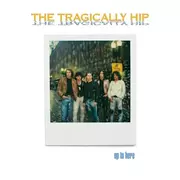New York, NY (Top40 Charts) As we move through 2024, the music industry is experiencing a dynamic evolution, driven by technological advancements, shifting cultural landscapes, and the unstoppable rise of new talent. This year, several significant trends are shaping the music scene, promising an era of creativity, inclusivity, and innovation. From the ascent of Gen Z artists to the resurgence of live music, here are the key music trends to watch out for in 2024.
The Rise of Gen Z Artists: New Voices, New Perspectives
Gen Z artists are making their mark on the music industry in unprecedented ways. Born between the late 1990s and early 2010s, this generation is characterized by its digital savviness, social consciousness, and desire for authenticity. In 2024, expect to see even more young artists breaking out, bringing fresh perspectives and messages to the forefront of popular music.
One of the defining characteristics of Gen Z artists is their ability to leverage social media platforms to build their fanbases. TikTok, in particular, has become a breeding ground for new talent, where short, catchy clips can quickly go viral, catapulting unknown artists into the spotlight. Artists like Olivia Rodrigo, Lil Nas X, and Billie Eilish have already paved the way, showing that Gen Z musicians are not only talented but also adept at navigating the complexities of the digital landscape.
These young artists are also known for their willingness to tackle important social issues through their music. Themes such as mental health, climate change, and social justice are prevalent in their lyrics, resonating deeply with their peers and fostering a sense of connection and understanding. As Gen Z continues to mature, their influence on the music industry will only grow, bringing new voices and perspectives that challenge the status quo.
Embracing the Hybrid Sound: Blurring Genre Boundaries
The concept of genre has always been a way to categorize and understand music, but in 2024, artists are increasingly rejecting these labels in favor of a more fluid and hybrid approach. This trend reflects the diversity of modern music, where influences from various genres are blended to create unique and innovative sounds.
Hybrid music is not entirely new, but its prevalence is growing as artists and producers experiment with different styles and cultures. This fusion can be seen in the work of artists like Doja Cat, whose music seamlessly blends pop, hip-hop, R&B, and electronic elements, or Bad Bunny, who incorporates reggaeton, Latin trap, and even rock into his tracks.
The rise of streaming services has played a significant role in this trend. Platforms like Spotify and Apple Music use algorithms to recommend songs based on listening habits, exposing users to a broader range of genres than they might encounter on traditional radio. This cross-pollination of musical styles encourages artists to explore new sounds and push creative boundaries.
In 2024, we can expect to see more collaborations between artists from different genres and cultural backgrounds. These partnerships not only produce exciting new music but also promote cultural exchange and understanding. The hybrid sound is a testament to the evolving nature of music, where creativity knows no bounds.
The Reemergence of Live Music: A Post-Pandemic Revival
The COVID-19 pandemic dealt a severe blow to the live music industry, with concerts and festivals canceled worldwide. However, as the world gradually recovers, live music is set to make a triumphant comeback in 2024. Artists, promoters, and fans are eager to return to the energy and excitement of live performances, and this resurgence is shaping up to be one of the year's most anticipated trends.
Live music offers an unparalleled experience, allowing fans to connect with their favorite artists and with each other. In 2024, there will be a renewed focus on creating memorable and immersive live events. This includes everything from small, intimate gigs to large-scale festivals, each designed to captivate audiences and provide a sense of community.
Technological advancements are also enhancing the live music experience. Virtual and augmented reality are being integrated into concerts, offering fans new ways to engage with performances. For example, some artists are using VR to create virtual concerts that fans can attend from anywhere in the world, while AR is being used to add interactive elements to live shows.
Safety remains a priority as live music returns. Event organizers are implementing new health and safety protocols to ensure that concerts and festivals can be enjoyed without compromising public health. These measures include improved ventilation systems, contactless payment options, and enhanced sanitation practices.
A New Era of Music Festivals: Innovation and Diversity
Music festivals have long been a staple of the live music scene, but in 2024, they are evolving to meet the changing tastes and expectations of audiences. This year, festivals are incorporating new technologies, interactive elements, and diverse lineups to keep fans engaged and entertained.
One of the most exciting developments is the use of technology to enhance the festival experience. Many festivals are adopting apps that allow attendees to create personalized schedules, navigate festival grounds, and even interact with artists and other fans. Augmented reality is also being used to create immersive art installations and interactive experiences that go beyond the music.
Diversity and inclusion are becoming central themes for music festivals in 2024. Festival organizers are making a concerted effort to book diverse lineups that represent a wide range of genres, cultures, and identities. This commitment to inclusivity not only reflects the diversity of the audience but also promotes a more equitable and representative music industry.
Sustainability is another key focus for modern festivals. With growing awareness of environmental issues, many festivals are implementing eco-friendly practices, such as reducing plastic waste, promoting recycling, and using renewable energy sources. These efforts not only minimize the environmental impact of festivals but also resonate with the values of today's environmentally conscious audiences.
The Continued Rise of Latin Music: A Global Phenomenon
Latin music has been on the rise for several years, and its popularity shows no signs of waning in 2024. This genre's infectious rhythms and vibrant energy have captivated audiences worldwide, leading to a surge in crossover hits and collaborations between Latin and mainstream artists.
The success of artists like Bad Bunny, J Balvin, and Rosalía has brought Latin music to the global stage, transcending language barriers and appealing to diverse audiences. In 2024, we can expect to see even more Latin artists breaking into the mainstream, as well as increased collaborations between Latin and non-Latin musicians.
Streaming platforms have played a significant role in the global spread of Latin music. Services like Spotify and YouTube have made it easier for listeners to discover and enjoy Latin tracks, while social media platforms have amplified their reach. TikTok, in particular, has been instrumental in popularizing Latin songs, with many tracks going viral and reaching millions of users worldwide.
Latin music's influence can also be seen in its integration into other genres. Pop, hip-hop, and electronic music are increasingly incorporating Latin elements, creating a fusion that appeals to a broad audience. This cross-genre collaboration not only expands the reach of Latin music but also enriches the overall music landscape.
In 2024, the continued rise of Latin music will likely lead to more significant opportunities for Latin artists and a greater appreciation of Latin culture worldwide. This trend underscores the power of music to transcend borders and bring people together, celebrating diversity and shared human experiences.
Moving forward
The music industry in 2024 is a vibrant and dynamic landscape, shaped by the rise of Gen Z artists, the embrace of hybrid sounds, the resurgence of live music, the innovation of music festivals, and the continued ascent of Latin music. These trends reflect the evolving tastes and values of audiences, as well as the limitless creativity of artists. As we navigate this exciting year, one thing is clear: music continues to be a powerful force for connection, expression, and change.
























